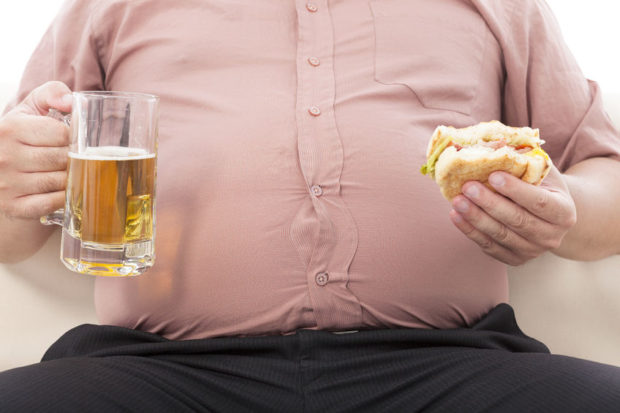Gaining weight in middle age linked to quicker decline in lung capacity later in life

INQUIRER.net Stock Photo
New European research has found that gaining weight during middle age appears to be linked to a faster decline in lung capacity later in life. However, the decline can be slowed by weight loss.
Carried out by Australian and European researchers, the new study looked at 3,673 participants from Australia and 12 countries across Europe. The participants had an average age of 34 at the start of the study, and were followed for a period of 20 years, during which time they had their weight, height and lung function recorded at three different time points.
Lung capacity is an important indicator of future ill health and life expectancy, and is measured by forced vital capacity (FVC), which is the total amount of air a person can forcibly exhale, and forced expiratory volume (FEV), which is the amount of air a person can forcibly exhale in one second.
The results, published online in the journal Thorax, showed that for the participants with a healthy weight or who were overweight or obese at the start of the study, a moderate (0.25 to 1 kilogram per year) and high weight gain (over 1 kilogram per year) were associated with a faster decline in lung capacity.
The findings also held true even after taking into account other potentially influential factors such as whether the participants smoked or had asthma and how often they exercised.
However, participants who were obese at the start of the study and lost weight over the following 20 years, or who were underweight at the start of the study and whose weight remained stable, experienced a reduction in lung function decline.
Lung capacity naturally declines as we age. However, slowing down the process is important to help prevent serious respiratory ill health.
The researchers point out that as this was an observational study, they cannot establish a cause-and-effect relationship between weight gain and declining lung function. However, they add that the findings do support earlier research and “reinforce the public health message that overweight and obesity have deleterious effects on health, including respiratory health.”
“However, the negative effects of overweight and obesity on lung function can be reversed by weight loss even in later adult life,” they continue. “Therefore, public health policies that promote healthy lifestyles and body weight may be important for maintaining good lung function in adult life,” they conclude. IB /ra
RELATED STORIES:
Intermittent fasting may contribute to prolonged life expectancy — study
Difficult breakups aren’t necessarily associated with gaining weight